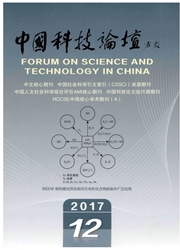

 中文摘要:
中文摘要:
摘要:基于低碳技术存量差异.本文构建了两类企业选择创新模式的演化博弈模型。在碳税税率与碳交易价格不同的情境下.通过数值仿真模拟了企业低碳技术创新模式的动态选择过程。研究表明:技术能力与存量是企业低碳技术创新战略选择的根本约束.技术能力较弱的企业对碳税税率、碳交易价格变化相对敏感,技术劣势迫使其选择模仿创新.而技术能力较强的企业大多倾向于自主创新,通过碳交易机制获取创新补偿收益:适度税率可以刺激低技术企业加强研发活动。同时为高技术企业提供创新补偿,成为碳税政策工具发挥价格控制功能的临界条件;碳交易政策为不同技术水平企业运营提供了市场协调方式,与碳税政策组合出差异化的补偿机制与替代机制。
 英文摘要:
英文摘要:
Based on the stock difference of low carbon technology, the paper constructed an evolutionary game model about choosing innovation strategies for two kinds of enterprises, and simulated the dynamic selection process of the low carbon technology innovation model through numerical simulation in the context of different carbon tax rate and carbon trading prices. The main results show that: technology stock and capacity are the fundamental constraints for enterprise to choose low carbon technology innovation strategy. The weaker companies are sensitive to the carbon tax rate and trading price, which force the companies to adopt imitation innovation for the technological gap. But the stronger ones mostly prefer to in-house innovation, and gain compensation benefit through carbon trading mechanism. The modest tax rates can stimulate weaker enterprise to strengthen the R&D activities, and provide the stronger ones with innovation offset. The carbon trading policy offers a market coordinated way to firms with different technical level, which respectively shows the compensation and alternative mechanism combined with carbon tax policy.
 同期刊论文项目
同期刊论文项目
 同项目期刊论文
同项目期刊论文
 期刊信息
期刊信息
